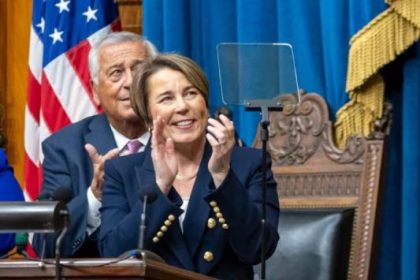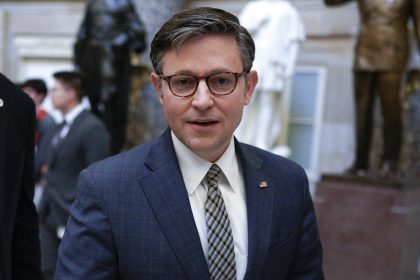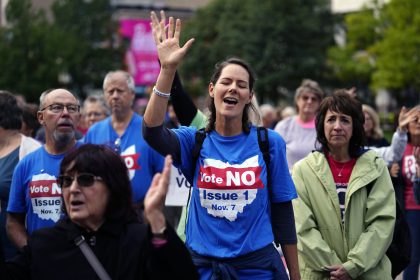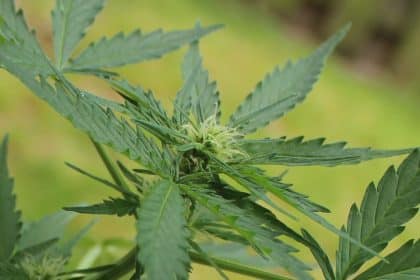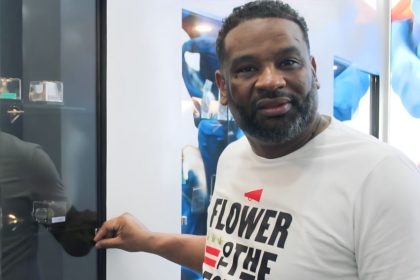Businessman Strives to Bring Luxury to DC’s Once-Stigmatized Cannabis Sector
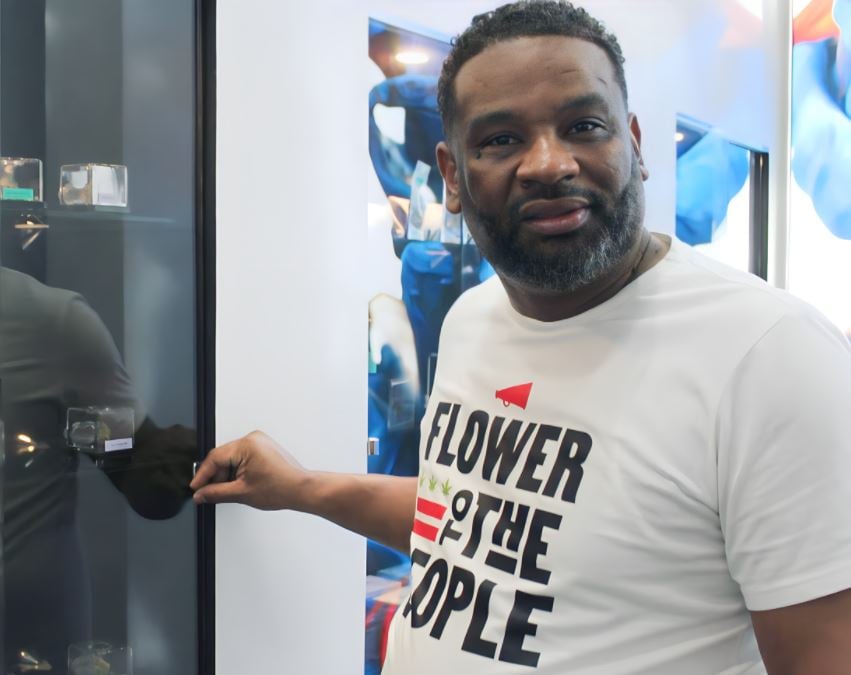
WASHINGTON — To the casual passerby strolling along K Street NW, the neat, glass-dominated storefront of Monko could easily be mistaken for a spa, high-end hair cuttery or upscale purveyor of lotions and other beauty products.
That aura of luxury lingers after one steps inside and into a wide open space dominated by various hues of gray and white and neatly arranged merchandise, ranging from athletic wear to diet supplements to, yes, skin lotions, all bathed in soft white light.
You could be at the fragrance counter at Saks, or in a Ralph Lauren store, or the guest notions shop at a Ritz Carlton.
In reality, however, what you’re experiencing is one entrepreneur’s vision of the future of the cannabis industry in the District of Columbia.
While founder and CEO Terrence White certainly isn’t alone in trying to cement a brick-and-mortar retail future for the exploding cannabis industry, his doing so in D.C., and literally in the shadow of Capitol Hill, certainly makes him a unique spokesman for the industry.
And such is its trailblazing nature that Monko, which White describes not as a store but a “cannabis lifestyle brand,” recently became the first cannabis business to join the Greater Washington Black Chamber of Commerce.
“This business started just like any other business, with a very specific idea and in a neighborhood context that I thought would be very supportive of what we wanted to do,” said White, a lifelong D.C. resident who mentions in passing his being a “formerly incarcerated citizen.”
“Certainly as laws surrounding cannabis have changed, there’s been a greater recognition of it having a place in a healthy, active lifestyle,” he said. “Yes, you can still find places in the district where you can buy cannabis — still illegal by the way — or get a lower-quality product in a murkier retail setting.
“But what we wanted, from the start, was to be a luxury business in the cannabis space, and one that is in keeping with the revitalization of our neighborhood, the Mount Vernon Triangle,” White said.
“Ten or 12 years ago, no one wanted to live here. Today, the average income of residents of this community is about $152,000 a year, the average age of residents falls somewhere between ages 28 and 35, and the demographic is heavily female versus White-male dominant.
“So we wanted to reflect all of that, and also that we’re only five blocks from downtown D.C. and retailers like Gucci and Louis Vuitton. It’s not a leap to go from them to the Mount Vernon Triangle anymore. We’ve got high-end apartments and five-star restaurants and we want Monko,” White said with a sweep of his hand, “to reflect all that and to represent it to the greater Washington community.”
At the same time, White described his business as an outlet for his desire to fight for social equity and justice.
“Along with everything I just said, I want Monko to show people that we can do cannabis the right way,” he said. “We want it to be a pathway to a license to grow and sell, and to do that, we’re complying with the rules all other businesses comply with, such as securing a business license and a certificate of occupancy, and at the same time, we’re contributing to the Triangle by engaging in and supporting community activities.”
Blurred Lines
The status of cannabis in the District of Columbia has long been tied up in the complicated politics of its status as a “federal district” or territory in the eyes of the federal government.
For the past 50 years, Congress has allowed limited home rule in the district, meaning certain functions of governance can be carried out by locally elected officials.
Despite the nod to local governance, Congress maintains the power to overturn any district laws it does not like, and in truth, the locally elected government presides at the pleasure of Congress, and could, technically, be revoked at any time.
In practice, the unique legal status of the district creates a situation in which its residents are denied both a complete say over their government and a real seat at the table — voting representation — in the body that has ultimate control over how they live.
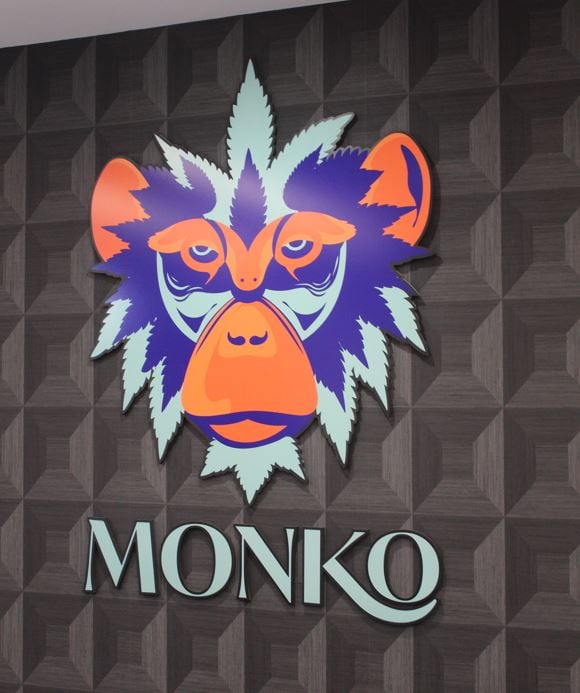
When it comes to cannabis, the will of the district and Congress have often been at odds.
A case in point: After D.C. voters approved the use of medical marijuana in 1998, congressional Republicans prevented the program from being implemented for nearly 11 years.
As a result, while there are currently more than 12,000 medical marijuana patients in the district, lawmakers are still grappling with how to operate such a program effectively.
For instance, just last year, the D.C. Council passed temporary emergency legislation that allowed district residents aged 21 and older to “self-certify” that they were using cannabis for medical purposes.
As an emergency measure the bill did not require a second vote by the council or approval from Congress and it expired in September 2022, 90 days after taking effect.
Then there’s the story of the district’s Initiative 71, which legalized possession of small amounts of cannabis for personal use eight years ago.
The public referendum passed in a landslide in 2014, according to the district’s board of elections, garnering 70.06% of the vote, with just 29.94% voting in opposition. The raw vote total was 115,050 to 49,168.
Specifically, the law made it legal for adults aged 21 or older to possess 2 ounces or fewer of cannabis for personal use, use marijuana on private property, and cultivate up to six plants for their own use with no more than three being “mature” at any one time.
The initiative also made it legal to “transfer” 1 ounce or fewer of cannabis to another person, so long as the transfer was a “gift,” and no money, goods or services were exchanged.
The initiative had no effect on federal law, so despite the district’s willingness to allow at least some smoking, federal law enforcement officers could still arrest anyone in the district for the possession of any amount of cannabis.
Advocates for Initiative 71 saw the law as a step toward the legalization of cannabis, and many, though not all, in city hall saw legalized weed as a vehicle for tapping a heretofore untapped source of tax revenue.
Both those hopes were dashed, however, by Rep. Andy Harris, R-Md., who in early 2015 inserted a rider into a federal spending bill that blocked the city council from moving forward on legalizing marijuana sales.
Though cannabis proponents have blasted the Harris rider ever since, the rider has been tucked into a federal spending measure every year.
In a statement provided to The Well News, Rep. Harris said because the D.C. referendum had already occurred by the time the original rider was passed, the current system that allows ‘gifting’ was the only way to stop further action on the legalization of recreational cannabis by the district government.
“Although a statutory version of the rider or an outright prohibition of recreational marijuana could theoretically be passed by the House, it would likely not be approved in the Senate with a 60 vote filibuster threshold,” Harris said, noting that “the Biden administration itself even includes the rider in its own budget recommendation.”
The Rise of the ‘Gifting’ Economy
The situation led to the formation of the I-71 Committee, a coalition of D.C. businesses that “gift” cannabis (more on this concept later) while urging the D.C. City Council to press ahead with efforts to create a legal and taxable market for sales.
White, who is the current chairman of the I-71 committee, said the grassroots effort (no pun intended) was a recognition of the District of Columbia paving the way toward some level of legalization and that Congress abruptly shut it down.
For many of the dozens of businesses that joined the group, the decision to move from discrete enterprise to public advocacy was a leap of faith.
Though some in the city insist any trade in cannabis is still illegal, regardless of Initiative 71, the coalition maintains the initiative freed their members from the negative connotation attached to the illicit drug trade and brought them into the sunlight.
“It took me two-and-a-half years to cultivate the relationships necessary to establish a business like this,” White said.
“Without getting too deep into the woods about it, it’s essentially a process of establishing relationships through a loyalty and honor system,” he continued, adding, “As in any business, as a retailer, you have to find the right products and the right people to actually do business with.”
It’s a point White came to time and again during an initial Zoom call and a later visit to Monko itself.
“I’m a businessman. I am not a drug dealer,” he said. “I’m not someone sitting down with a guy with a gun negotiating an illicit transaction. What I am is someone saying, ‘Look, I’m a businessman. I understand business. And if you’re going to move in the direction of legalizing cannabis, there’s a correct way to do it as a business.’”
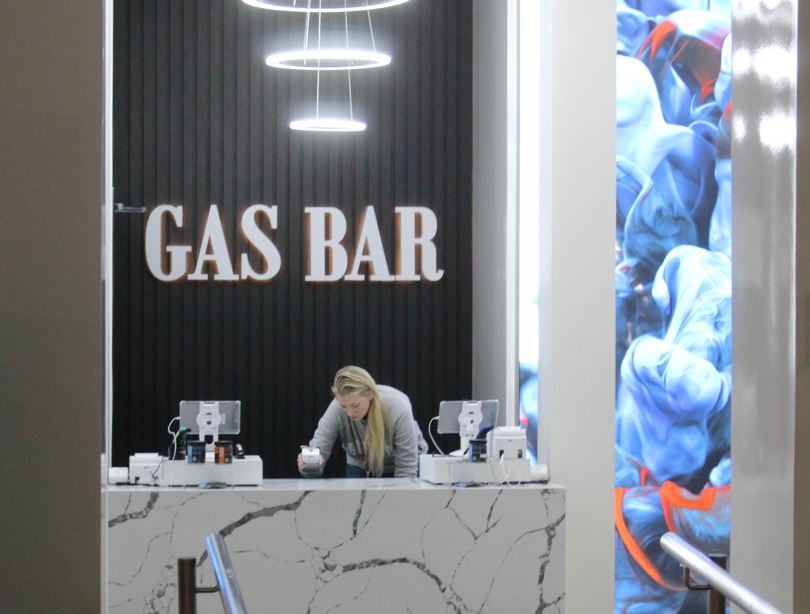
This, it turns out, is a subject White can talk about at some length. As much an educator as an advocate, he readily acknowledges cannabis is still “a high-risk business” facing many hurdles traditional businesses never confront.
For instance, because cannabis is still classified as an illegal drug by the federal government, access to traditional banking services is almost nonexistent.
“Banking … has been very difficult, I must say,” White admitted. “But what’s been good for us is that we’ve assembled a team of people to work with so we can do business in as traditional a way as possible, within the landscape of cannabis.”
There’s surely nothing hidden about Monko, whose storefront is mere feet from the outdoor diners at the K Street Busboys and Poets location.
Inside, White and his friendly, knowledgeable, ever-ready-to-help staff, guide the visitor through a personalized selection process.
In the clothing section, as one would imagine, this process is pretty straightforward. It grows a bit more complex when it comes to Monko’s selection of branded creams and shampoos, with staffers drawing shoppers out on specific conditions — like dry skin or less-than-vibrant hair — they are trying to address.
But it’s in the back of the store, a location labeled the “Gas Bar,” that things get really interesting.
This is where one finds a range of pre-packaged 3.5-gram cannabis flowers, pre-rolls, gummies and vapes, and it’s here that White and his staff truly go into education mode, helping to turn a shopper’s vision of what they want to experience into a curated reality.
Unlocking a display case, White removes a small clear plastic box containing a mostly green flower about the size of an average mature strawberry. Cupping the box with both hands, White tilts it so a visitor can see the small magnifying glass affixed on its top.
“This allows you to get a good look at the flower, so you can assess its freshness,” he says.
Next, he pushes a button on the side of the box, releasing a puff of air that allows a hint of the flower’s aroma to escape a pair of air vents.
“Now, compare that flower, to this one,” he says, repeating the process.
But sight and olfactory stimulation are only two factors visitors to Monko are encouraged to consider as they look over the wide-ranging selection.
“One reason you see the number of flowers we have on display is each differs in effect,” White explained. “You basically have two types of plants these flowers come from — those that are more related to the Indica strain cause a more calming or relaxing effect; the others belong to the Sativa strain, which is associated with a more energetic, uplifting feeling.
“Then there are factors like the CBD-to-THC ratio, and the method of use and so on,” he said.
CBD or cannabidiol, is one of the two main active ingredients in cannabis, and according to the World Health Organization, it is the one least likely to cause a “high” when used.
CBD is often sold as an oil, is not psychoactive, and has certain medicinal properties. THC, on the other hand, is the main psychoactive chemical in marijuana.
THC, or tetrahydrocannabinol, is the component of cannabis that causes the psychoactive effect of “feeling buzzed” and can also cause impairment in motor abilities and short-term memory recall issues.
A recent study funded by the U.S. Department of Health and Human Services found that although all cannabinoids can be generally helpful for chronic pain, products with a higher THC-to-CBD ratio may be more potent than products with a higher CBD-to-THC ratio.
The irony in the crash course is that none of the products in Monko’s “Gas Bar” are for sale.
Instead customers can buy clothing, beauty products, pins or other artwork, racking up “points” that garner them a “gift” from the gas bar to go with it.
Like his fellow business members, he insists his store is operating well within the spirit of the initiative, and so confident is he that he’s right, that he’s already planning additional locations in other parts of the district.
“As I said before, I’m very interested in social equity and social justice, and I see what we’re doing in cannabis as a piece of that,” White said. “We’re removing the stigma from cannabis and in doing so hopefully creating a pathway for others, especially in marginalized communities, to become part of the greater economy of the city.”
As of late July, the Initiative 71 Coalition was approaching 40 members strong, and White said the group continues to add more members each month.
“I think if there’s one thing that could apply to all of us, broadly, it’s that we all got into this hoping to be seen not as an illegal business, but as a business trying to become legal. And it’s hard work. I mean, sometimes you just shake your head at the issues that arise and resistance we still encounter.
“Anytime that you have to advocate for legislation, it’s hard work,” he added. “Any time you have to sit down with members of the city council and other organizers and try to convince them why legalization is a good thing, it’s hard work.”
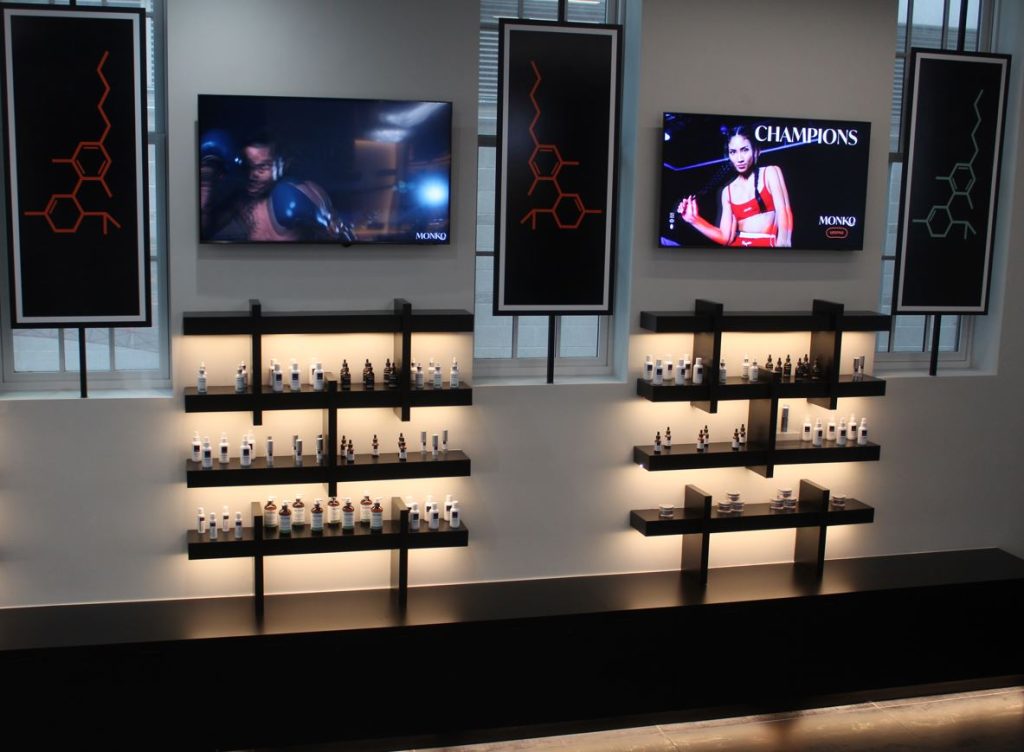
Lately, White has even taken to pointing to a study that came out of the University of South Carolina earlier this year that suggests naturally occurring cannabinoids produced inside the human body — known as endocannabinoids — are critical to regulating inflammation and other immune functions.
According to Prakash Nagarkatti and Mitzi Nagarkatti, professors of pathology, microbiology and immunology at the university, these naturally occurring chemicals in all of us are very similar to the THC found in the Cannabis sativa plant.
“It is as if the human body has its own version of a marijuana seedling inside, constantly producing small amounts of endocannabinoids,” the Nagarkattis wrote.
Though THC was first identified in 1964, endocannabinoids were not discovered until 1992, and most lay people still don’t know they exist.
Since then, however, researchers have revealed that endocannabinoids are critical for many important physiological functions that regulate human health.
An imbalance in the production of endocannabinoids, or in the body’s responsiveness to them, can lead to major clinical disorders, including obesity as well as neurodegenerative, cardiovascular and inflammatory diseases.
“Deciphering the role of endocannabinoids is still an emerging area of health research. Certainly much more research is needed to decipher their role in regulating different functions in the body,” the Nagarkattis wrote.
“In our view, it will also be important to continue to unravel the relationship between defects in the endocannabinoid system and the development of various diseases and clinical disorders. We think that the answers could hold great promise for the development of new therapies using the body’s own cannabinoids,” they concluded.
To White, this and other research begs a simple question: “If cannabinoids are produced by your own body, how can they be bad for you? Or be considered an illicit substance?”
While he and his colleagues seek to educate the public at large, they’re also eagerly checking all the boxes they need to check to be part of the district’s business community.
“That’s why I’m so honored to have been the first cannabis retailer invited to join the Greater Washington Black Chamber of Commerce,” White said. “I mean, what they are doing, especially in the African American community, in terms of diversity and inclusion, is just so important.
“Again, it’s all about social equity and social justice, which are near and dear to my heart,” he continued.
With that, White paused and called attention to the t-shirt he was wearing, emblazoned with the slogan “Flower to the People.”
“That slogan, that stance, is the advocacy side of what we do,” White said. “I fight for Black and Brown people every day in the cannabis space … so that they can not only learn about it, but actually be retailers and be cultivators or whatever it is they are trying to be,” he said.
“Being a member of the chamber gives me the opportunity to spread that message even further, as being the first from this business [sector] to participate in the chamber, gives me a role in setting the level of the playing field for others to get into.
“Inclusion is important as we move forward,” White continued. “Because cannabis is the first business or first industry to come along that will allow Black and Brown people to create true generational wealth, and to have that process begin on day one.
“There has not been any other undertaking that has allowed us to get into business that way. So I see being aligned with the Black chamber as a way to open more doors than I can possibly count. I’m looking forward to all the opportunities it presents,” he said.
As for Monko, White has applied for a cultivation and dispensary license so that he can vertically integrate his supply chain. At the same time, the business is also actively sponsoring events, like a recent undisputed welterweight world title fight between the ultimately victorious Terence Crawford against Errol Spence in Las Vegas, Nevada, and it recently announced a competition seeking the best tattoo artists in the DMV whose art will be featured in its fall apparel collection.
“To me, what I ultimately want Monko to be is an ecosystem, not only in the Mount Vernon neighborhood, but other neighborhoods as well,” White said. “Being vertically integrated will allow us not only to control our own destiny, in terms of supply and demand, but it will also allow us to better control our own margins and profits.
“At the same time, it will enable us to expand our footprint and put us in a position to really invest back into the city,” he said.
“I mean, it really is the dream of any business. You want to make a name for yourself. You want to create generational wealth. Your success allows any advocacy work you engage in to blossom, and then you have a platform to give back and help others achieve those dreams,” White said.
Looking forward from the perspective of the Initiative 71 Coalition, White said the group is going to continue to push for legalization of the recreational use of cannabis in the district, a process that will entail not only continuing its dialogue with the D.C. Council, but also meeting with as many members of Congress as they can to advocate for a repeal or amendment of the Harris rider.
“So, my work is cut out very well,” White said with a broad smile. “There’s never a dull moment. Never a dull day. But that’s the fight that I decided to get into.
“You know, sometimes, I do ask myself, ‘Did I bite off a little more than I should have when I didn’t have to?’ But then I think, ‘No, God has blessed me with this role and afforded me this opportunity,’ so I’m very thankful and grateful for everything that’s on my plate,” he said.
Dan can be reached at [email protected] and @DanMcCue
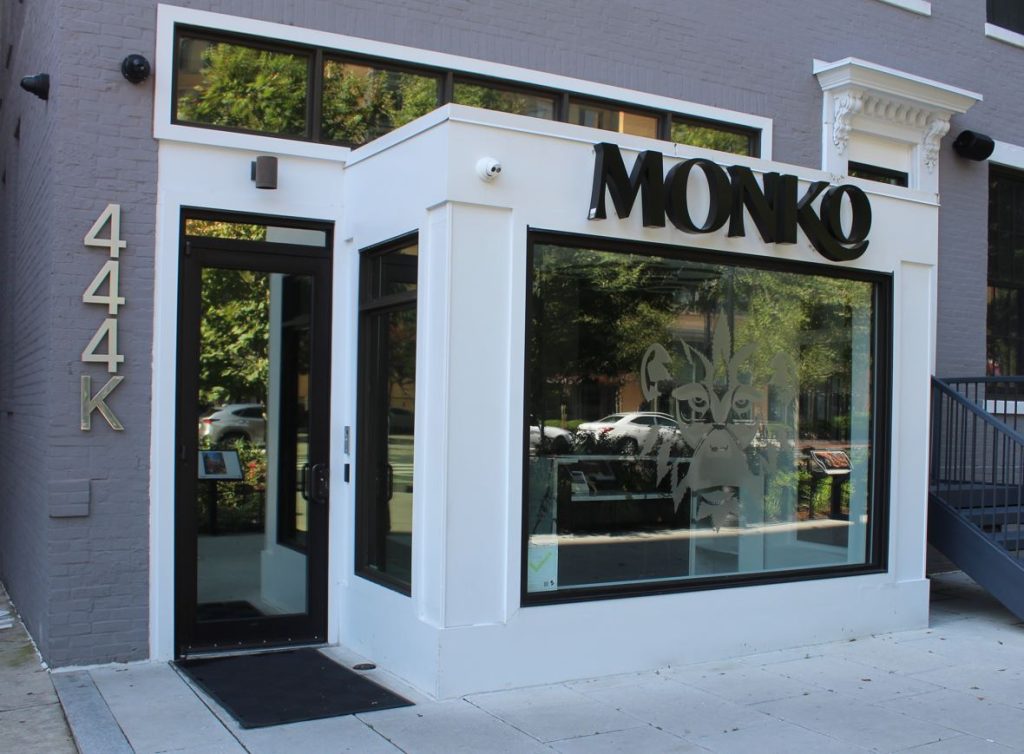
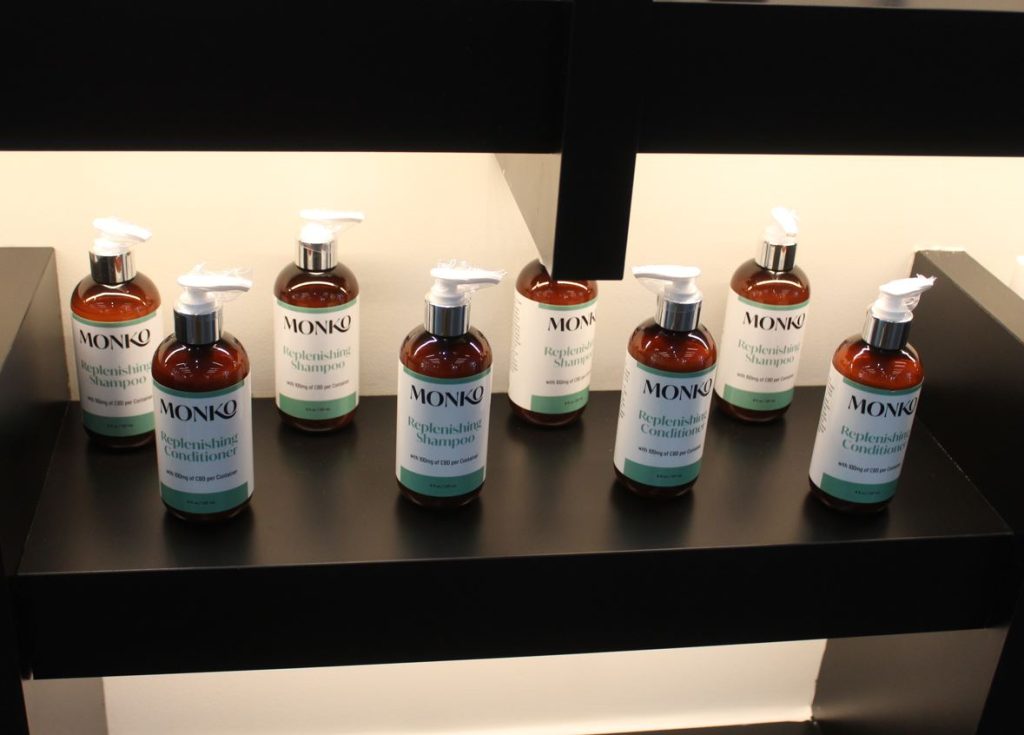
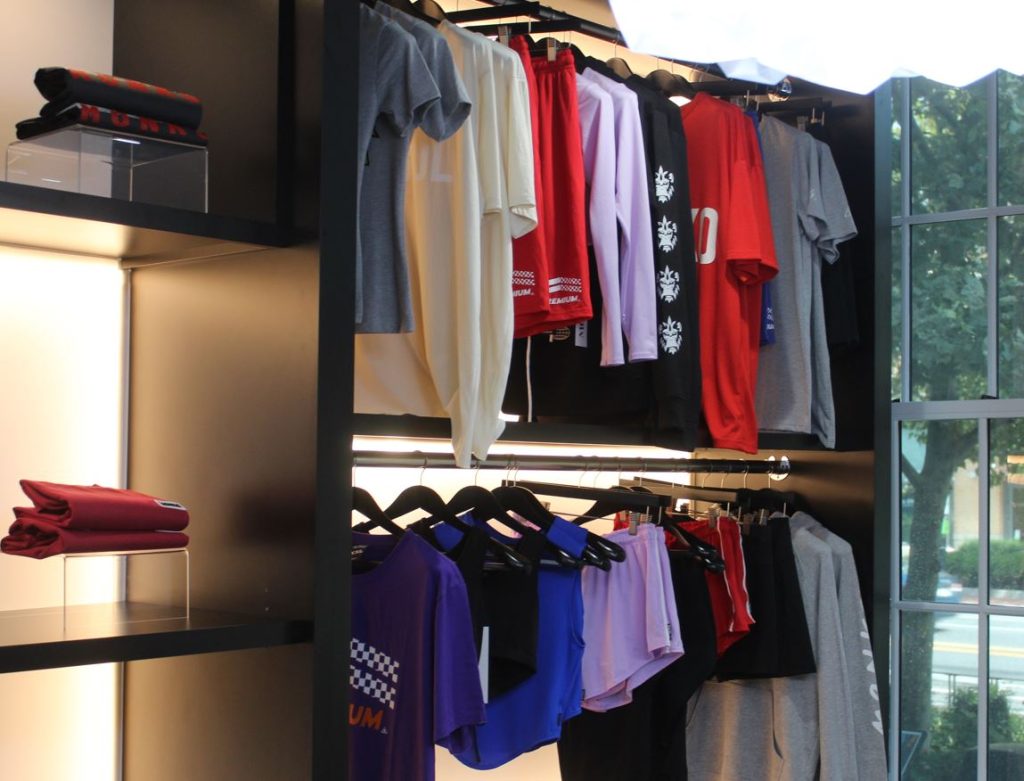
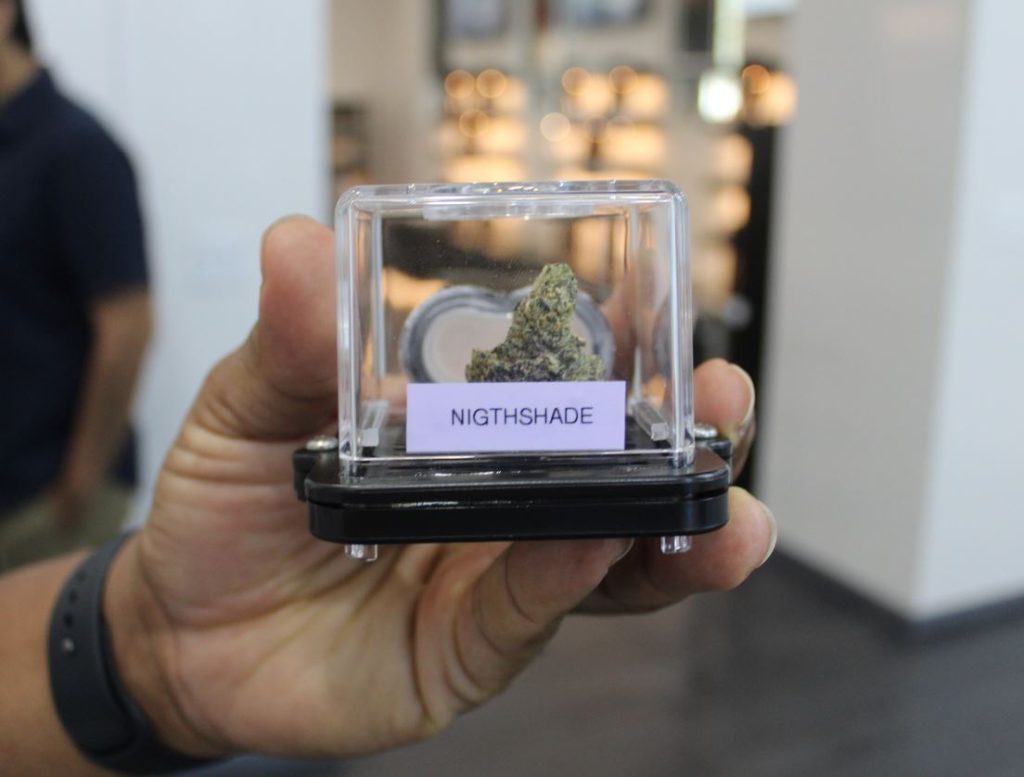
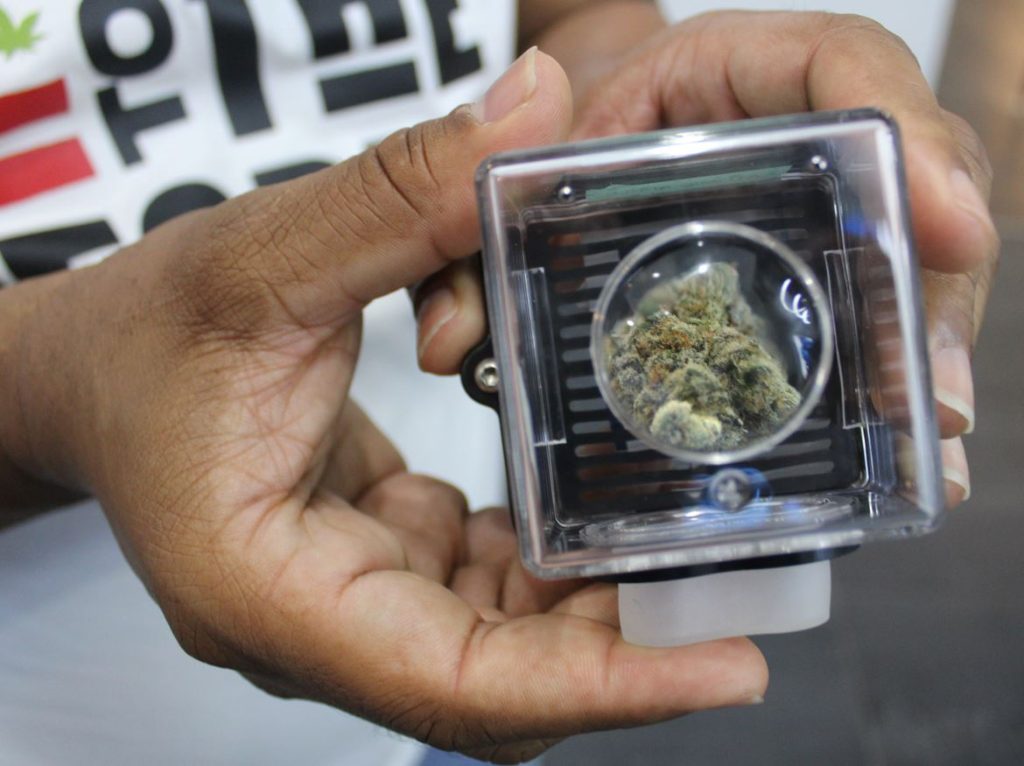
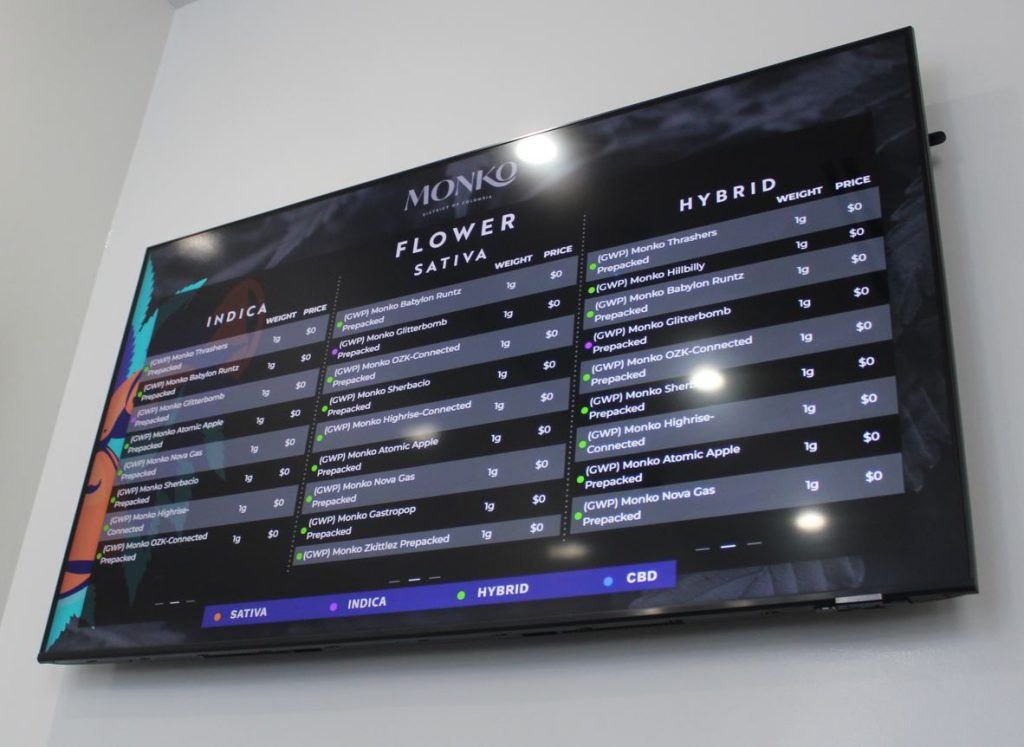
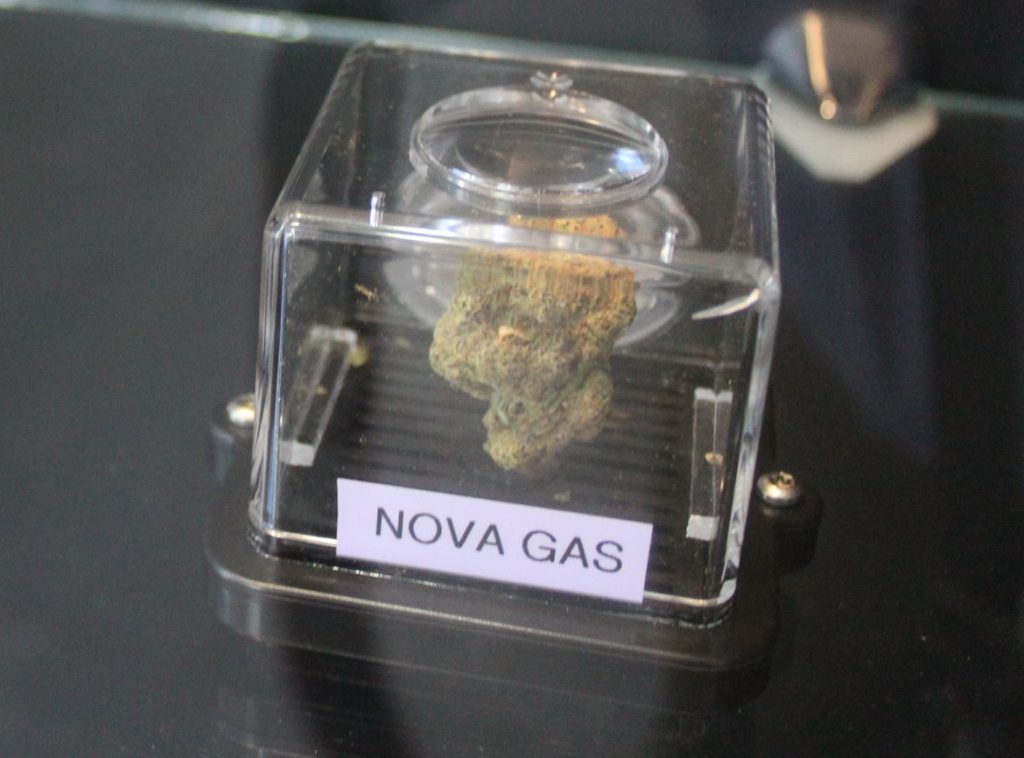
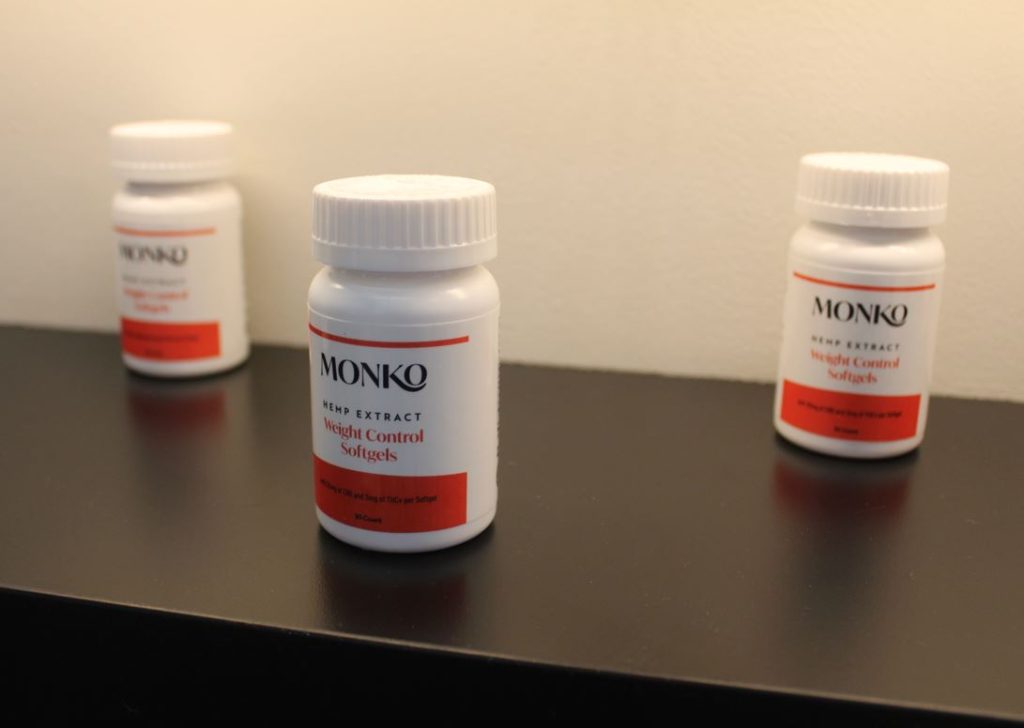
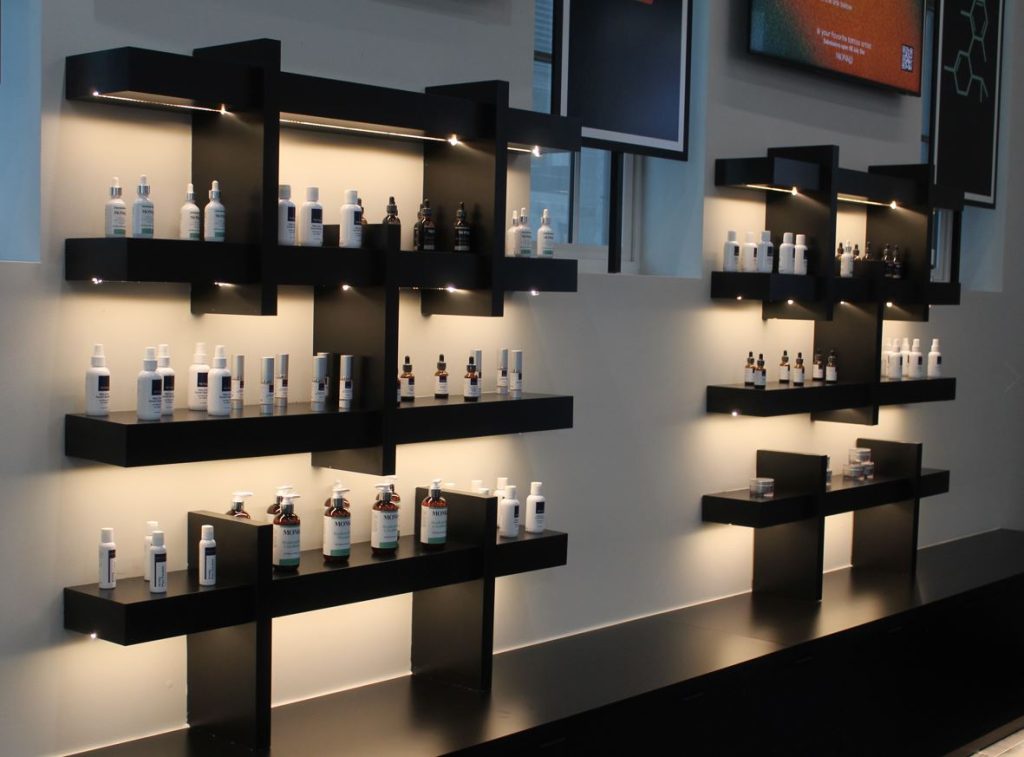
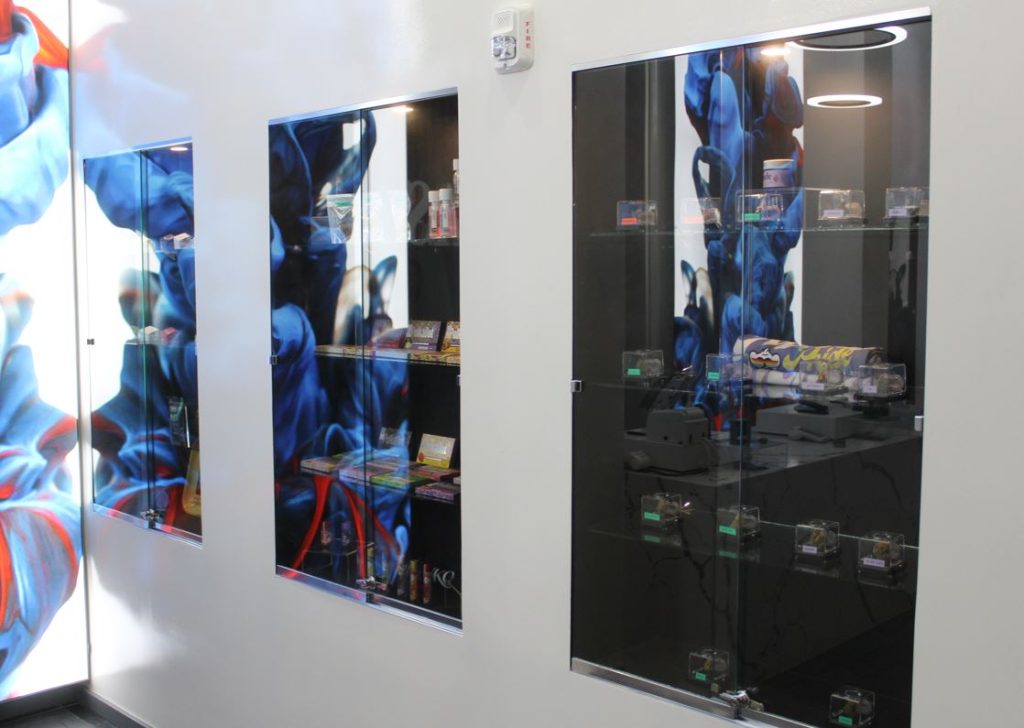
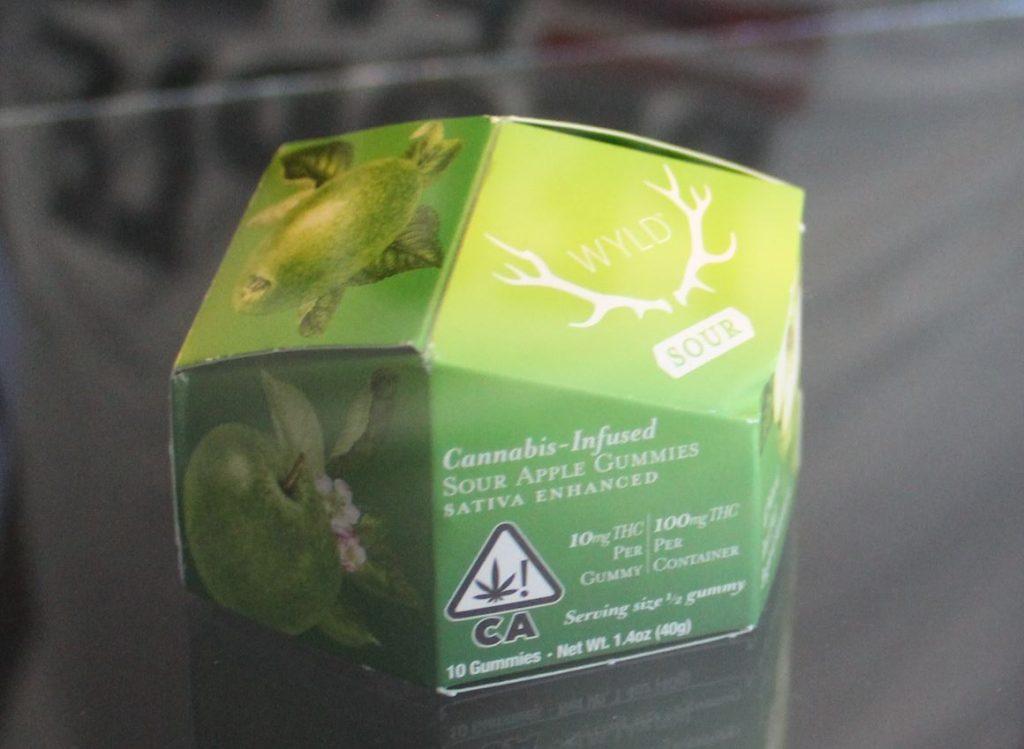
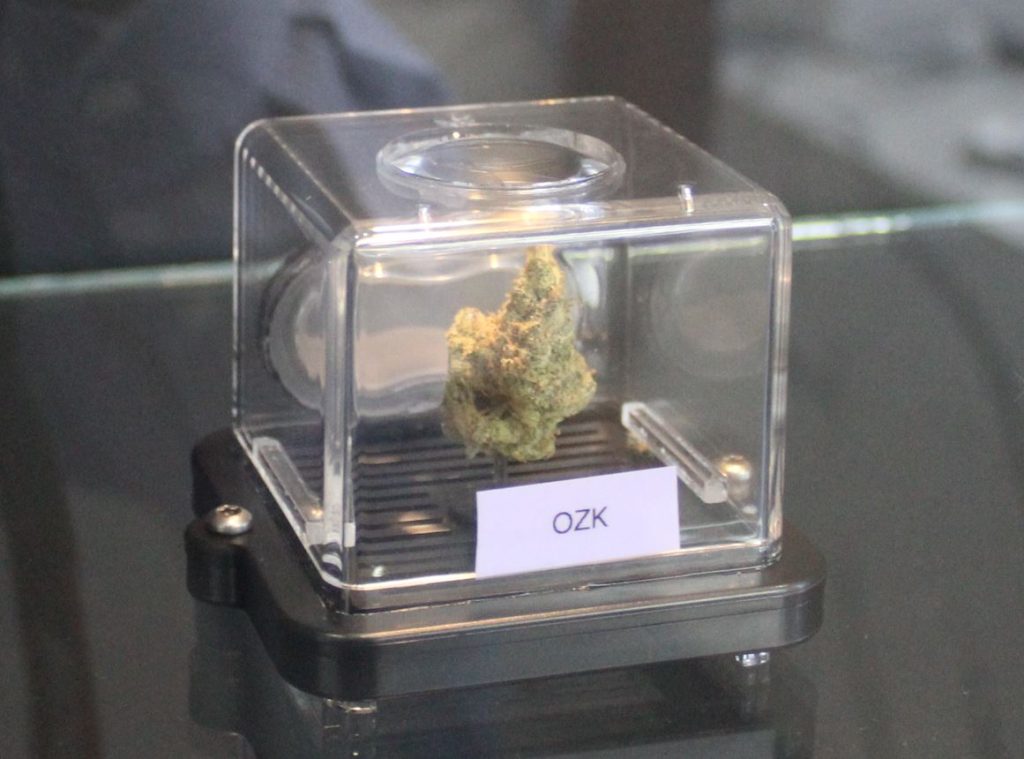
This story was updated to include a statement from Rep. Andy Harris, of Maryland.


















